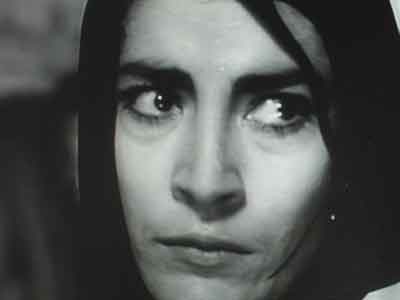a call to laugh
Why so happy to laugh with your mouth shut?
You should laugh like a flower, without a care.
Love that leaps from the soul is not the same thing
As love you hang round your neck by a string.
#1781: From Rumi's Kolliyaat-e Shams-e Tabrizi
Search word: laugh
I'm continuing with the theme of joy and laughter, inspired especially after revisiting via DVD a very old but classic movie, Michael Cacoyannis' Zorba The Greek (aka Alexis Zorbas, 1964), based on the novel by Nikos Kazantzakis and with music by Mikis Theodorakis. It's astonishing that it won only 3 Oscars with Anthony Quinn and Cacoyannis himself missing out. It was up against George Cukor's magnificent My Fair Lady with Rex Harrison taking the leading male Oscar. Today, if I was forced to choose only one of these two movies to keep, I'd go with Zorba. There is enduring wisdom in it, both tragedy and mirth, a blend of fantasy and reality, a single exquisite love scene, and such a joyous ending. It hugely lacks glamour but is none the worse for it.
Zorba is famous for being so quotable and this one is my own favourite:
Alexis Zorba: God has a very big heart but there is one sin he will not forgive
[slaps table]
Alexis Zorba: if a woman calls a man to her bed and he will not go. I know because a very wise old Turk told me.
This reference to "a very wise old Turk" and Zorba's reliance on dance when his soul is full brought Rumi to mind. Kazantzakis was a great student of religion and of mysticism and he wrote a good deal about it, both directly and by infusion into his novels. It makes perfect sense that he would embody the Sufi spirit inside this Zorba character.
The most moving and powerful moment in the film (and novel) for me is the slaying of the widow. In the film, it is done briefly, the blood and cutting are off-screen, and the intact corpse on the ground suggests that she simply had her throat slit. In the book, she is beheaded. This is the dark side of both book and film, the cruelty and barbarity of the local Cretans. There is a vicious realism to it, perhaps a harsh point to be made. I wish it were not true but I know it is.

Irene Papas in the role of the widow @ www.mlahanas.de
When I look at Rumi's verse for today, I see in it a call to men to open up and feel the joy of life, much as Zorba does. He can call all he wishes but women are not free to express themselves, not in Islamic communities nor even in places like Crete that have been touched by Islamic values. It's been 700 years now since Rumi died (in 1273) and the relative freedom today of Turkish women is not down to him but to secular humanist influences coming from "the West". As much as I believe that Rumi had a great heart, a great genius, and a deeply saintly character, I have to admit that he had little moral or political influence on Islam as a whole. He was and remains overshadowed by Mohammad and the greatly inferior literary effort that is the Quran.
Today, there is a woman capable of speaking to Arabs in their own tongue, a woman "with balls", with passionate fire, with unstoppable élan. Her name is Wafa Sultan and you can hear her here (or read a transcript here).
Go, girl, go!



0 Comments:
Post a Comment
<< Home